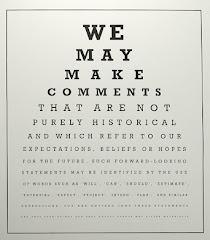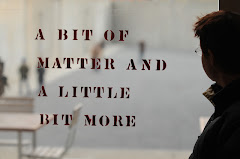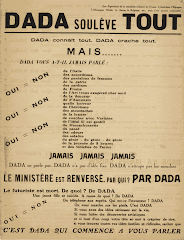...Each of these three organizations seeks to eliminate physical suffering by using words...
Atrocity and Interrogation
by James Dawes
To enter the headquarters for the United Nations High Commissioner for Refugees in Turkey, you must pass through barbed wire gates and a security checkpoint. If you are applying for asylum (because, for example, you have escaped Iraq after being raped and tortured or because you will be executed if forced to return to Iran), you will be escorted through these gates and then taken downstairs into the holding chambers of the basement. There you will be required to answer a series of questions to determine whether you meet the specific conditions for refugee status under international law. If your answers do not suffice, you will be deported back to your country of origin. The interview rooms are small with poor ventilation. Larry Bottinick, eligibility officer for the UNHCR, explains that they will be moving to a new building soon. "Whenever you ask an Iraqi to describe the conditions of their detention," he says of refugees from Saddam Hussein's Iraq, "they answer: `It was like this room.'"
But this article is not about what it feels like to be interrogated. It is about what it feels like to interrogate someone. I visited the UNHCR in Turkey as part of a larger research project on organizations that intervene in humanitarian crises by using language instead of food, medicine, or weapons, organizations whose most important act is, finally, not delivering supplies but asking questions. Through a series of formal and informal interviews I documented the organizational dynamics and communicative practices of some of the world's most recognizable humanitarian inquisitors: the UNHCR, the International Committee of the Red Cross (ICRC), and the Human Rights Association (HRA). I focused in particular on the everyday practices of activists in the field, hoping to better understand not only how we can use language to alter the operations of violence but also to see how, by using language in such ways, we might be altered.
More.
When you are dealing with language, there is no edge that the picture drops over or drops off. You are dealing with something completely infinite. Language, because it is the most non-objective thing we have ever developed in this world, never stops. Lawrence Weiner
language + the materials referred to
Lawrence Weiner designates “language + the materials referred to” as the medium for his work, allowing him to situate his sculptural practice in a wide range of geographical locations and cultural systems (or “points of reception”, in Weiner’s words). This course explores writing as a creative and critical strategy through themes such as art writing; materiality and genre; the aesthetics of the dematerialized artifact; language as sculpture, sound art, and the role of language in conceptual art.
Carey Young

Cautionary Statement (2007)
COURSE TEXTS
- Birgit Pelzer & John Goodman (1999), Dissociated Objects: The Statements/Sculptures of Lawrence Weiner (October, Vol. 90, pp. 76-108. Available via JSTOR)
- Course blog
- Donald Judd (1965) Specific Objects (in Thomas Kellein, Donald Judd: Early Work, 1955-1968, New York: D.A.P., 2002. Originally published in Arts Yearbook 8, 1965. Available via course blog).
- Jack Burnham (1968), ”System Esthetics” in Artforum
- Silvia Kolbowski (2000) An Inadequate History of Conceptual Art (October, Vol. 92, pp. 52-70. Available via JSTOR)
- Simon Morley: Writing on the Wall: Word and Image in Modern Art (Berkeley and Los Angeles: University of California Press, 2003)
- The Prose Poem: An International Journal
- Ubuweb
- W.J.T. Mitchell (1994), “Ekphrasis and the Other” in Picture Theory
A bit of matter and a little bit more

Lawrence Weiner (1976)
In the buginning is the woid, in the muddle is the sounddance.
James Joyce
James Joyce
Marcel Broodthaers holding Sadoul's L'Invention du Cinéma

Photo: Joaquin Romero Frias
"Let's waltz the rumba."
Fats Waller
This is...
7. This is not philosophy, it’s poetry. And if I say so, then it becomes painting, music or sculpture, judged as such. If there are variables to consider, they are at least partly economic—the question of distribution, etc. Also differing critical traditions. Could this be good Poetry, yet bad music? But yet I do not believe I would, except in jest, posit this as dance or urban planning.
from The Chinese Notebook
by Ron Silliman
from The Chinese Notebook
by Ron Silliman
Alice's Adventures in Wonderland
ALICE was beginning to get very tired of sitting by her sister on the bank and of having nothing to do: once or twice she had peeped into the book her sister was reading, but it had no pictures or conversations in it, "and what is the use of a book," thought Alice, "without pictures or conversations?'
Lewis Carroll
Lewis Carroll

from Philosophical Investigations
Our language can be seen as an ancient city: a maze of little streets and squares, of old and new houses, and of houses with additions from various periods; and this surrounded by a multitude of new boroughs with straight regular streets and uniform houses.
Ludwig Wittgenstein
Ludwig Wittgenstein
Word and Image Masters Course
Class of 2008 course blog
Rui Tenreiro
Roberta Burchardt (PDF available on request)
Merve Ertufan
Class of 2009:
Rui Tenreiro
Roberta Burchardt (PDF available on request)
Merve Ertufan
Induction valve (Soupape d'admission) by Francis PICABIA

50x33 cm. Gouache over an engineering blueprint. Private collection.
ART & CONCEPTUAL WRITING
Dada stirs up everything (Dada soulève tout)

15 January, 1921
PERFORMANCE WRITING & SOUND POETRY
The Bearded heart (Le Coeur à barbe)

Sole issue of a "transparent newspaper" published by Tristan Tzara in April 1922. 2x14 cm., 8 p. Black printing on pink paper.
RHETORIC & EKPHRASIS
SPIRIT VESSEL by Katherine Ng

WORKING NOTE: SPIRIT VESSEL is letterpress printed artist book produced through a Brody Arts Fund Grant. The hand set type was printed on two sides of the paper, then cut into strips (pages) and woven into the shape of a gourd. The text lists the uses of gourds from different cultures and so does the title of this piece. In the Chinese culture, the gourd is used as a container to capture evil spirits, whereas in the Japanese culture, the gourd is used as a vessel for intoxicating spirits.
Blog Archive
-
▼
2009
(62)
-
▼
March
(36)
- Bob Cobbing was the first explorer of sound poetry...
- favourite typewriters - hmmm....
- Merci a Brett, qui a trouvé ce travail sonore:Le c...
- Raymond Queneau’s One Hundred Million Million Poems
- An Introduction to Guillaume Apollinaire
- Vision in verse from the bard of the boardroomBy D...
- From the Green Box to Typo/Topography: Duchamp and...
- Between text and Image in Kandinsky's Oeuvre: A Co...
- Some Notes on Words and Things in Cy Twombly’s Scu...
- EkphrasisOne particular kind of visual description...
- Ekphrasis -- A Poetry Journal We are looking ...
- Thomas ElovssonDiamonds, Clown, Rock bands, Crayon...
- ...Each of these three organizations seeks to elim...
- LAWRENCE WEINER, 'THE OTHER SIDE OF A CUL-DE-SAC''...
- All Systems Go: Recovering Jack Burnham’s ‘Systems...
- The Aesthetics of Intelligent Systemsby Jack Burnh...
- Art by Telephone (1969), 44:00 Shortly after its o...
- Martha Rosler is an artist who works primarily wit...
- Emotional Rescueby Jörg HeiserFRIEZE Issue 71 Nove...
- Sounding the Alarm, in Words and LightJenny Holzer...
- Why Jonathan Jones is wrong about artTo accuse art...
- Assignment 3Read: 1. “Ekphrasis and the Other” W.J...
- WATER WALKJohn Cage performing "Water Walk" in Jan...
- AdvertisementBY WISLAWA SZYMBORSKAAnimated poem re...
- Lost and FoundBY MAXINE CHERNOFF Animated poem rea...
- Born DigitalA poet in the forefront of the field e...
- Concealment and Law in the Work of Carey YoungClan...
- Antonin Artaud
- Henri Chopin at Poesiefestival, Berlin 2003Watch.
- HENRI CHOPIN LIVE IN FRANCE 2005Pioneer of sound p...
- 'Sounding-board of thought and feeling'Sarah Magui...
- We meet in S1 all day tomorrow. Schedule is as fol...
- A MANCHA HUMANA / THE HUMAN STAIN CONCEPTUAL ART I...
- Assignment 2Due: Tuesday 10 March 2009A. Read1. Di...
- Assignment 1Devise a distribution system for your ...
- Recommended reading for lectures on Thursday 5th M...
-
▼
March
(36)
About Me
- Rolf Hughes
- Writer & critic; Guest Professor in Theory and Practice-Based Research at the Department of Interdisciplinary Studies at Konstfack University College of Arts, Crafts and Design, Stockholm; Senior Professor in Research Design at the Sint-Lucas School of Architecture, Brussels & Ghent; Senior Researcher at the Royal Institute of Technology, School of Architecture, Stockholm.